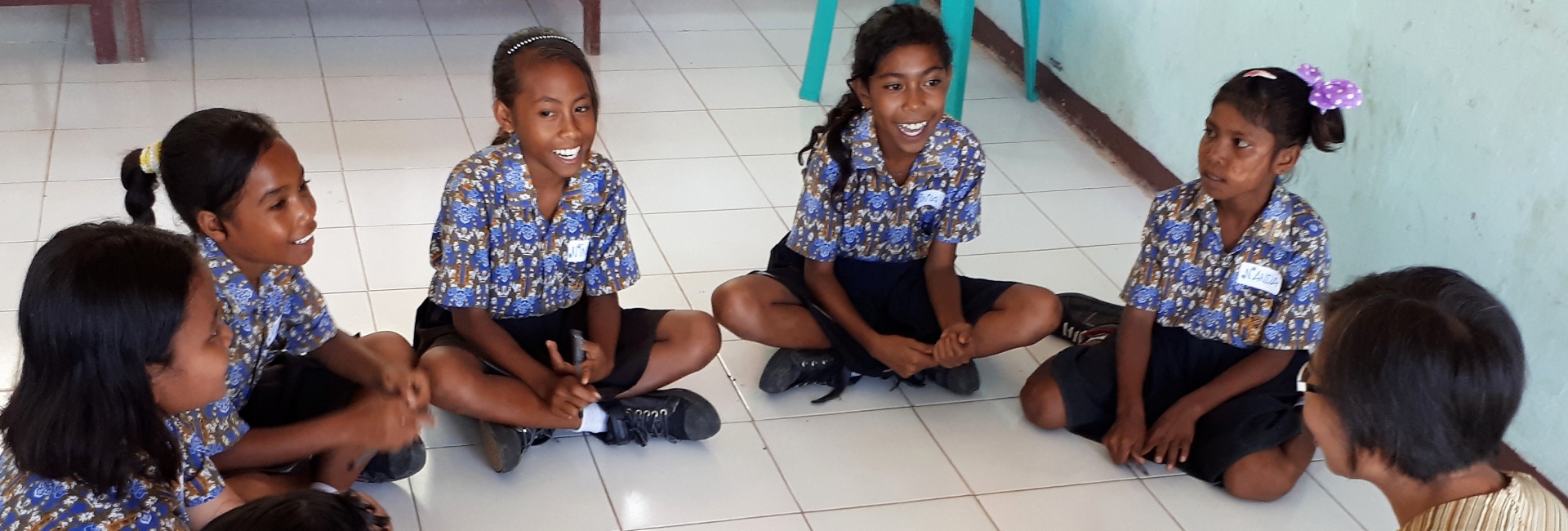Global studies reveal that there are correlations between sanitation facilities in schools and transition rate as well as attendance rate of female students when they are menstruating. In Indonesia, most primary schools are lacking in terms of sanitation facilities’ hygiene, however studies about menstrual hygiene management (MHM) are still limited. Therefore, The SMERU Research Institute collaborated with Plan International Indonesia (Plan) to conduct a qualitative study about the practice and impact of MHM at the primary school and junior high school level as well as to evaluate the existing MHM Program that has been implemented by Plan since 2014. This study was conducted in West Jakarta (DKI Jakarta), Kabupaten Nagekeo (East Nusa Tenggara), and Kabupaten Lombok Utara (West Nusa Tenggara). Information was collected from primary schools which receives the intervention and not receiving the intervention, junior high schools, and stakeholders at the kabupaten level and the community level. This study finds that although the condition in DKI Jakarta is comparatively better than the other two regions. In all regions, there are cultural values/myths that can potentially encourage poor MHM practices. At the school level, supporting facilities for MHM are inadequate. Meanwhile, students’ knowledge, practice, and skills regarding MHM are still low. During menstruation some students also experience verbal harassment. Menstruation was also found to physical and psychological ailment which affect student’s concentration, participation, and attendance. The MHM Program implemented by Plan receives positive responses, but was not too effective in improving the understanding towards the concept and practices of MHM, especially in DKI Jakarta and West Nusa Tenggara, due to, among others, limited activities of dissemination of information. This program must be continued and expanded, but it must be accompanied with improvement such as intensifying the number of dissemination activities and widening its target to improve the understanding of various parties, especially male and female students, towards the issue of menstruation and menstrual hygiene.



